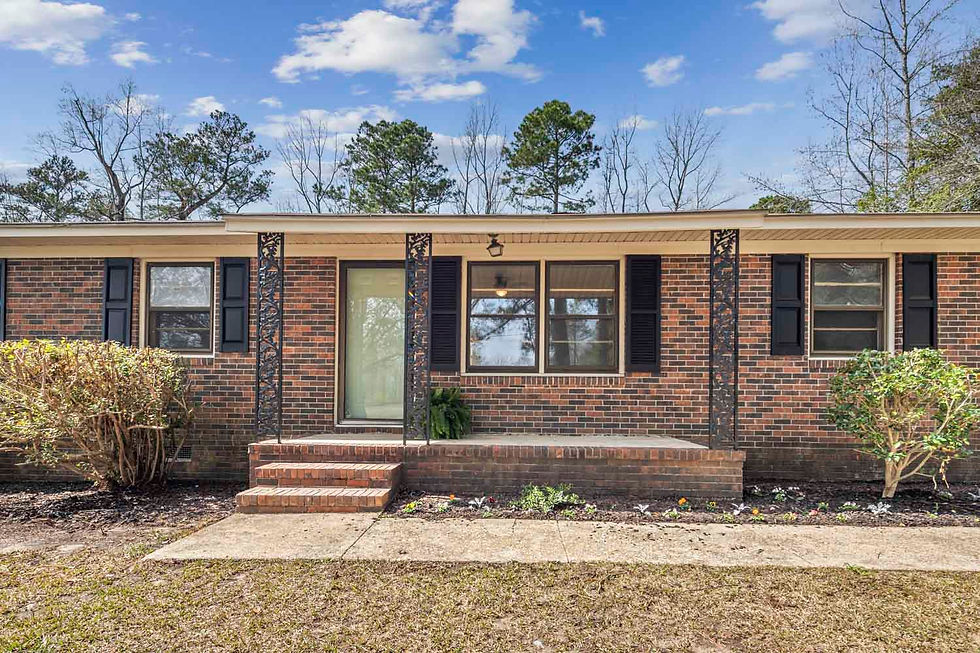How Much Do I Need for Earnest Money Around the Fort Bragg Area?
- Cassie Callahan
- Oct 23, 2025
- 3 min read
When you’re ready to make an offer on a home, one of the first questions that comes up is: how much earnest money do I need? In the Fort Bragg (formerly Fort Liberty) and Fayetteville area, earnest money is an important part of showing sellers that you’re serious about your offer — and it can make a big difference in a competitive market.
Let’s break down what earnest money is, how much to expect locally, and how it fits into your overall home-buying plan.

What Is Earnest Money?
Earnest money (sometimes called a good faith deposit) is a payment you make when you submit an offer on a home. It shows the seller you’re committed to the purchase. This deposit is typically held in an escrow account and applied to your down payment or closing costs when you close.
If the deal falls through for a valid reason — like an inspection issue or financing contingency — you usually get it back. But if you back out outside of your due diligence time, the seller may keep it as compensation for taking the home off the market.
Typical Earnest Money Amounts in the Fort Bragg/Fayetteville Area
While there’s no fixed amount required, here’s what you can generally expect:
Standard range: 1% to 2% of the purchase price.
For example: On a $300,000 home, that’s typically $3,000–$6,000.
Competitive offers: In multiple-offer situations, buyers sometimes increase their earnest money to show stronger commitment.
In our local North Carolina market — particularly around Cumberland, Hoke, and Harnett counties — sellers expect earnest money deposits that reflect both seriousness and financial strength, but not so high that it creates risk for the buyer.
How Earnest Money Differs from Due Diligence Money (in NC)
North Carolina is unique because we also have due diligence money, a separate payment made directly to the seller for the right to inspect and investigate the property before closing.
Here’s how the two differ:
Earnest money: Held in escrow; refundable under certain conditions.
Due diligence money: Paid to the seller; typically non-refundable unless the seller breaches the contract.
In Fayetteville and surrounding areas, due diligence deposits often range from $500 to $2,000, depending on the home’s price and market conditions.
How to Decide Your Earnest Money Amount
The right amount depends on:
Your budget: Make sure you’re comfortable with the funds being tied up during escrow.
Market conditions: In a hot market, a higher earnest deposit can make your offer stand out.
Seller motivation: A motivated seller may be flexible; others may expect a higher deposit for reassurance.
Lender requirements: Your lender will verify funds are available during the offer process.
What Happens to My Earnest Money at Closing?
At closing, your earnest money is applied toward your down payment or closing costs, reducing what you owe out of pocket. It’s not an extra fee — just an early portion of your investment in the home.
Final Thoughts
In the Fort Liberty and Fayetteville market, most buyers set aside 1%–2% of the home price for earnest money and $500–$2,000 for due diligence. These deposits show sellers you’re serious while protecting your interests throughout the transaction.
As your local agent, I’ll help you determine the perfect balance — strong enough to get your offer accepted but structured smartly to protect your funds.
Frequently Asked Questions
1. Is earnest money required to make an offer? Technically no, but in North Carolina, nearly all sellers expect it. It shows good faith and strengthens your offer.
2. Can I get my earnest money back if I cancel the contract? Yes, if you cancel within your due diligence period or for valid contingencies like inspection or financing issues.
3. Who holds the earnest money? It’s typically held by the closing attorney or real estate brokerage in a trust (escrow) account.
4. What’s the difference between earnest money and due diligence money? Earnest money is refundable under certain conditions; due diligence money is not (unless the seller breaches the contract).
5. How much total cash should I have ready when making an offer? Plan for earnest money + due diligence money upfront. For a $300,000 home, that’s usually around $3,500–$8,000 total, depending on your offer.

Ready to make your move near Fort Liberty or Fayetteville? Let’s talk strategy for your next offer. Call or text me at 910-916-9315, or visit closewithcassienc.com to start your home search today.
Close with Cassie – where service meets strategy.



Comments